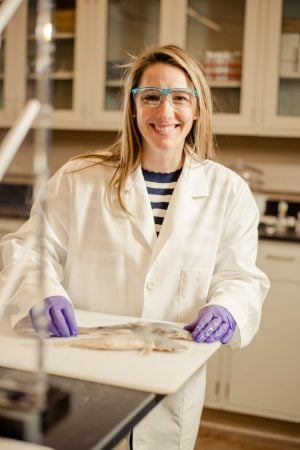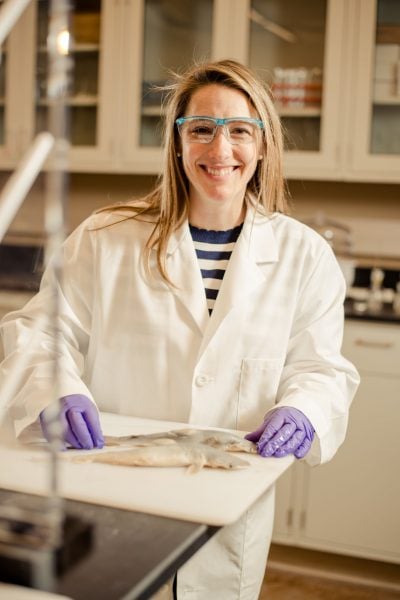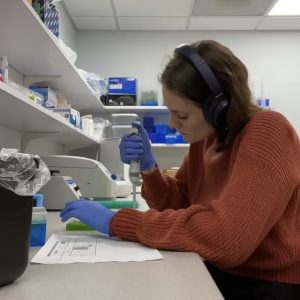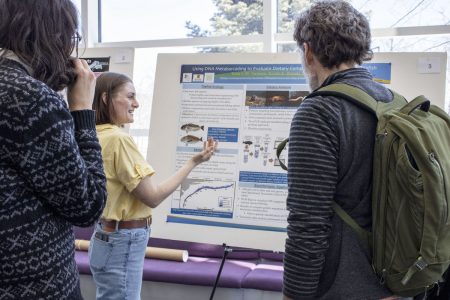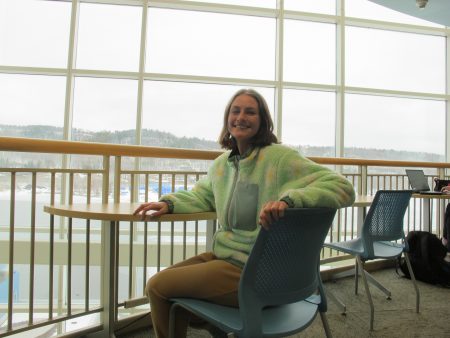Jill Olin (BioSci/GLRC) is the principal investigator (PI) on a project that has received an $82,917 research and development contract from Stony Brook University.
The title of the project is “Defining foraging hotspots of finfish and sharks in the New York Bight: linking trophic dynamics with spatiotemporal trends in species distributions.”
James Junker (GLRC) is a co-PI on this potential two-year project.
Jill Olin is a community ecologist who studies the processes that affect the stability and structure of ecosystems. She studies these issues in freshwater and coastal marine ecosystems because of the diversity and economic importance of species inhabiting these environments; and, toward the fact that they are under threat from anthropogenic influences. Olin uses community assembly, food web, and fisheries theory to explore the following research areas; (1) the intra- and inter-species interactions and trophic structuring of communities within a hierarchical construct; (2) the distribution patterns of organisms and the mechanisms that drive these patterns and; (3) the relative influence of anthropogenic threats and climactic drivers on ecosystem dynamics and resilience. She combines dietary biomarkers techniques with ecological and modeling approaches to explore questions with the overriding aim of providing data for conservation across multiple levels of organization.
Currently Jill teaches courses in Marine Ecology, Ecology and Evolution, and Ecogeochemical Tracer Techniques.
About the Biological Sciences Department
Biological scientists at Michigan Technological University help students apply academic concepts to real-world issues: improving healthcare, conserving biodiversity, advancing agriculture, and unlocking the secrets of evolution and genetics. The Biological Sciences Department offers seven undergraduate degrees and three graduate degrees. Supercharge your biology skills to meet the demands of a technology-driven society at a flagship public research university powered by science, technology, engineering, and math. Graduate with the theoretical knowledge and practical experience needed to solve real-world problems and succeed in academia, research, and tomorrow’s high-tech business landscape.
Questions? Contact us at biology@mtu.edu. Follow us on Facebook and Instagram for the latest happenings.
